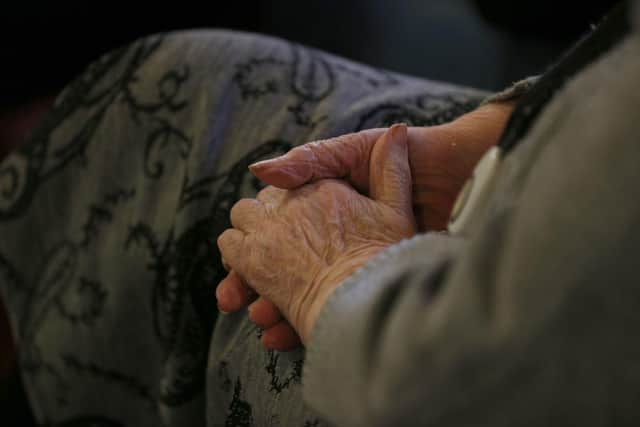Wigan carers forced to wait more than five times the legal limit to make decisions for vulnerable patients
and live on Freeview channel 276
Across the country, thousands have experienced a prolonged wait for their deprivation of liberty applications, which allow a third party to act on behalf of those judged to be unable to make decisions for themselves.
Care homes, hospitals, and other organisations must seek permission from the local authority to use the policy, which is generally only deployed for people with dementia or severe mental health issues.
Advertisement
Hide AdAdvertisement
Hide AdCharities said the delay that left thousands of people in limbo is a “public mental health scandal” and called on the Government to make sure the system is properly funded.


NHS Digital figures show 2,780 applications in Wigan took an average of 108 days to be completed, which was longer than the legal time limit of 21 days. Of those, 50 were processed within the 21-day time frame.
Those who faced the delays accounted for 98 per cent of all people whose applications were received or completed in the year ending March 2023.
Last year patients and carers had to wait for an average of 109 days.
Advertisement
Hide AdAdvertisement
Hide AdOne vulnerable person had to wait two years and 333 days for their application to be processed — the slowest completion in the area for the period 2022-23.
Across England, the average wait time for all completed applications was 156 days, an increase of three days on the previous year.
Rupen Gahir Kalsi, senior policy manager at VoiceAbility, a charity which advocates for patients, said: "These figures are shocking, but not surprising. This is wholly predictable and is why DoLS (deprivation of liberty safeguards) was due to be replaced by Liberty Protection Safeguards earlier this year – legislation which has now been shelved.
"LPS is not the perfect solution, but implementing this would make a huge difference to people, the majority of whom are older people, stuck living in places they don’t want to be, separated from friends and family. They need urgent action from government now."
Sharon Barber, director - integration and community services at Wigan Council, said: “The safety and wellbeing of our residents is always our priority and we continue to work closely with our partners – including care homes, hospital and supported living schemes - to ensure we can respond to deprivation of liberty assessments as swiftly as possible.
Advertisement
Hide AdAdvertisement
Hide Ad“This means that often we need to prioritise the most urgent of cases, particularly those within a hospital setting where discharge takes place quickly, and we continue to work incredibly closely with our colleagues at WWL NHS Trust to ensure we’re able to identify those priority assessments and keep the most vulnerable members of our communities safe.
“Our teams work incredibly hard to process these applications, especially considering legislative changes made in 2014 have not been supported by national government investment. The implementation of new liberty protection safeguards, which have again been delayed by the government, would also provide the opportunity to work differently and significantly reduce the need for waiting lists.
“While we do all we can to prevent waiting lists, we always ensure residents are safe in their environment and will continue to prioritise those who are most vulnerable - not simply those who have been waiting the longest.”
Rheian Davies, head of legal at mental health charity Mind, said: “Even under existing legislation these waiting lists could come down if ringfenced money was given to local authorities to employ more specialist social workers, known as Best Interest Assessors, who decide if the placement where the patient is detained is in their best interests.
“We call on the UK Government to take stock of these appalling figures and put in the resources needed to address what can only be called, a public mental health scandal.”
In Wigan, applications classified as 'standard' took an average of 296 days to be granted, while 'urgent' ones were completed in around 179 days.
Over half (56 per cent) of the 289,150 applications completed in England were not granted due to a change in the person’s circumstances or not meeting the assessment criteria.
In Wigan, there were 2,055 DoLS not granted — 74 per cent of all applications.